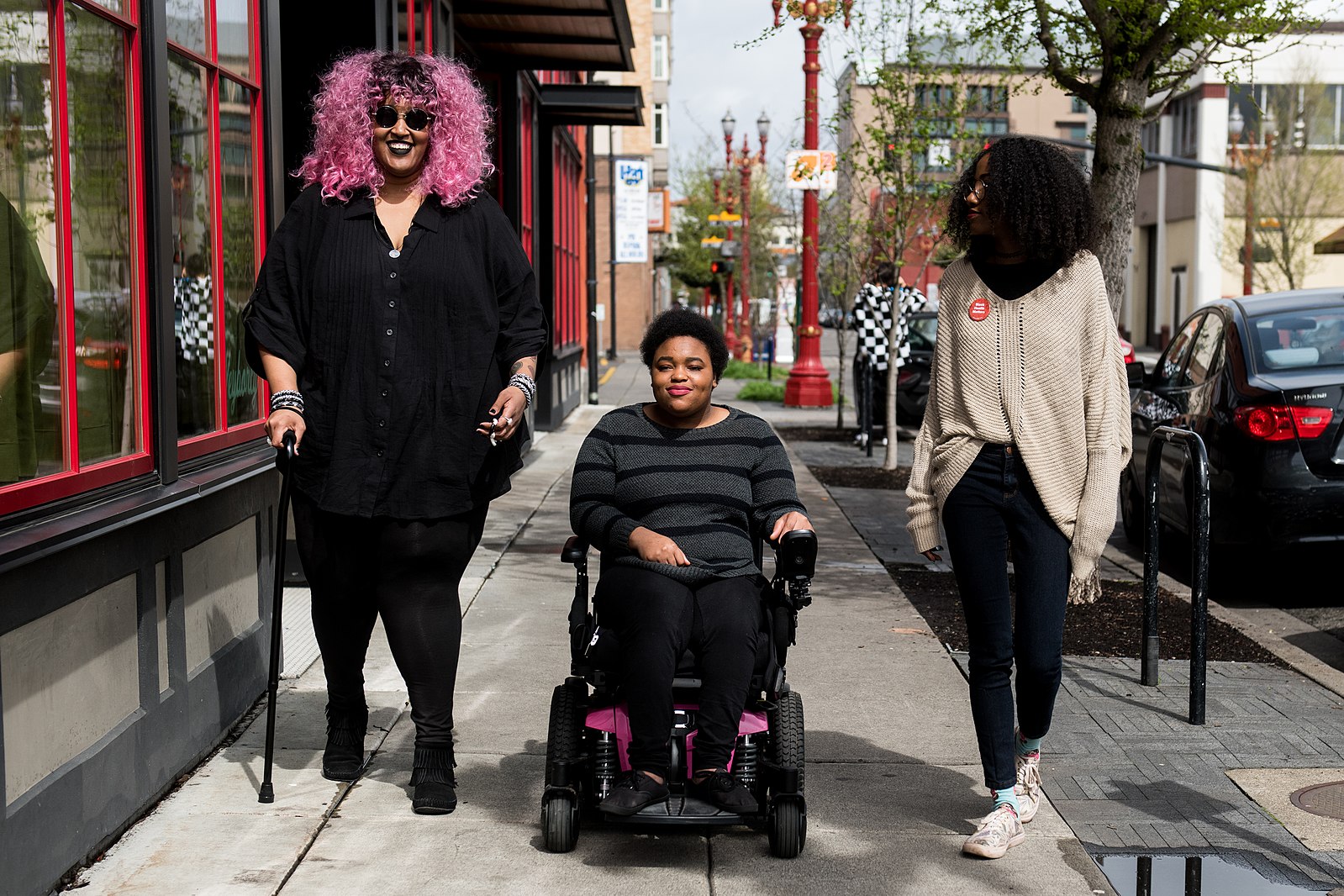Improving Health Outcomes for Black Women and Girls With Disabilities
By Megan Buckles and Mia Ives-Rublee,
Center for American Progress
| 02. 15. 2022
Photo licensed for reuse under CC BY 4.0
Studies show that people with disabilities are more likely than people without disabilities to report having poorer health and less access to adequate health care.1 This is especially true for women and girls of color with disabilities, who face inequalities because of their disability status, race, and gender.2 The systemic and structural barriers faced by Black disabled women and girls in the health care system stem from a legacy of slavery, ongoing anti-Black racism, and ableism.
The COVID-19 pandemic exposed and exacerbated those inequalities. According to the Centers for Disease Control and Prevention, Black Americans are dying from COVID-19 at nearly twice the rate of white Americans and have hospitalization rates that are nearly three times higher.3 People with disabilities are also disproportionately contracting and dying from COVID-19.4
Data are more limited for people with intersecting identities. Specifically, there are insufficient data on the impact of COVID-19 on women—and even less on Black women and still less for Black women with disabilities. According to a study from January 2021,5 U.S...
Related Articles
By Roni Caryn Rabin, The New York Times | 01.22.2026
The National Institutes of Health said on Thursday it is ending support for all research that makes use of human fetal tissue, eliminating funding for projects both within and outside of the agency.
A ban instituted in June 2019 by...
By Mike McIntire, The New York Times | 01.24.2026
Genetic researchers were seeking children for an ambitious, federally funded project to track brain development — a study that they told families could yield invaluable discoveries about DNA’s impact on behavior and disease.
They also promised that the children’s sensitive...
By Phil Galewitz, NPR | 01.20.2026
Serenity Cole enjoyed Christmas last month relaxing with her family near her St. Louis home, making crafts and visiting friends.
It was a contrast to how Cole, 18, spent part of the 2024 holiday season. She was in the hospital...
By Dan Barry and Sonia A. Rao, The New York Times | 01.26.2026
Photo by Gage Skidmore from Peoria, AZ, United States
of America, CC BY-SA 2.0, via Wikimedia Commons
Late last month, a woman posted a photograph on social media of a purple hat she had knitted, while a black-and-white dog...




